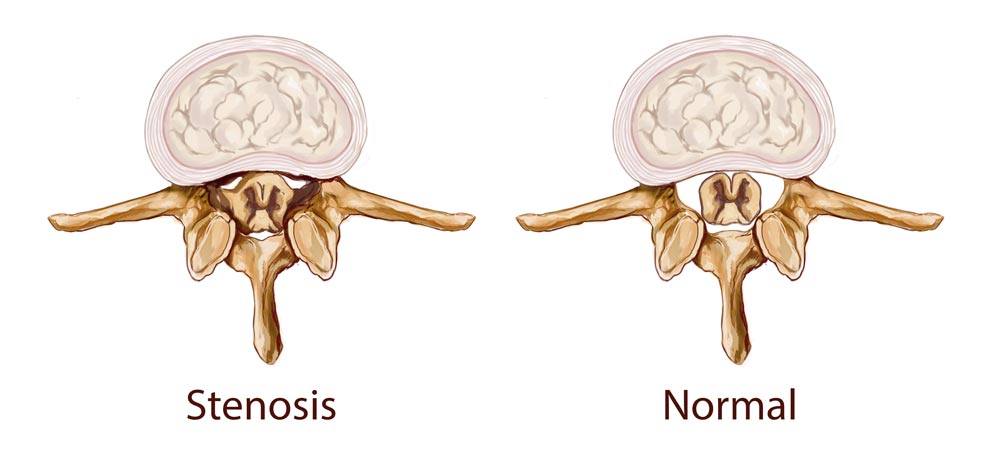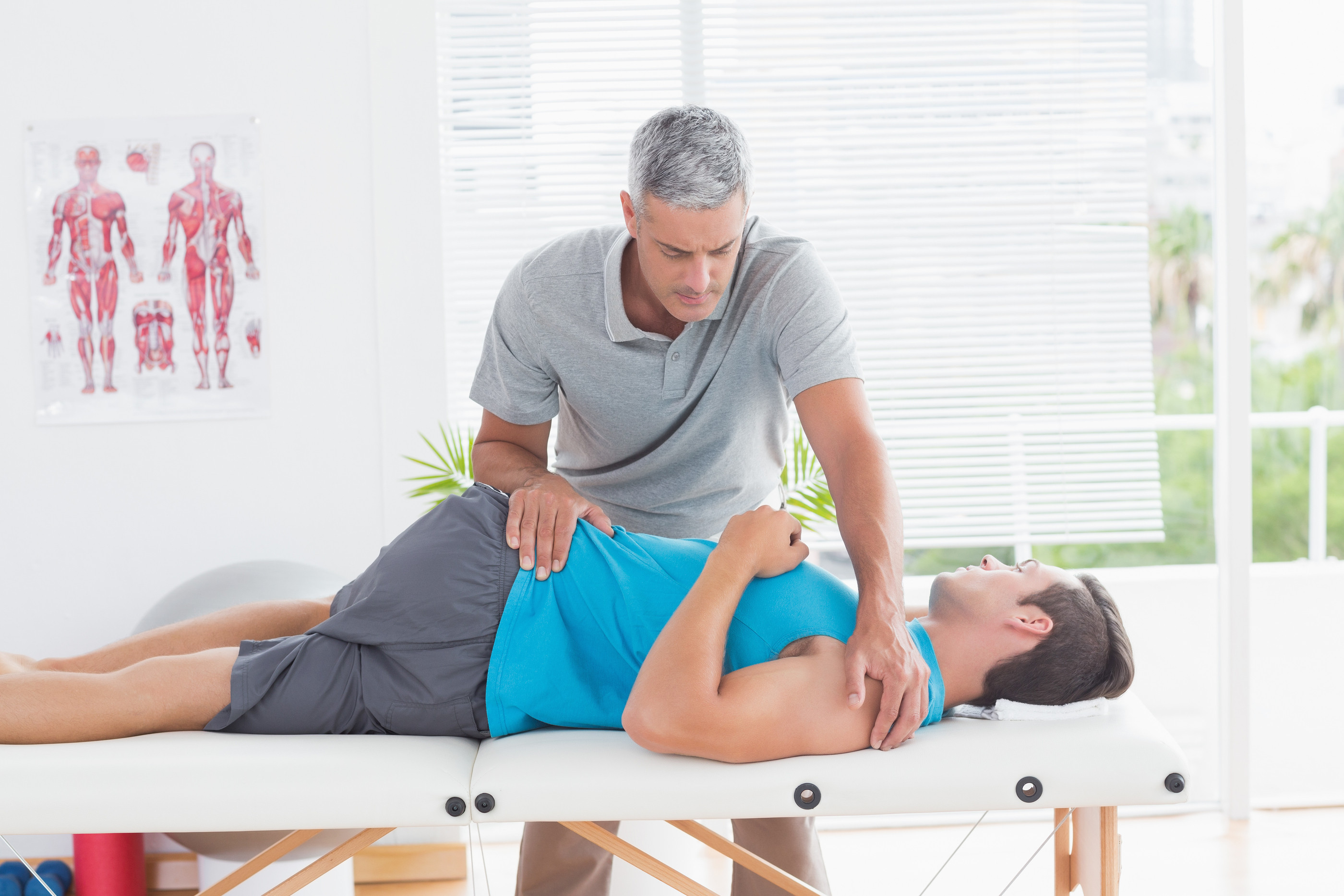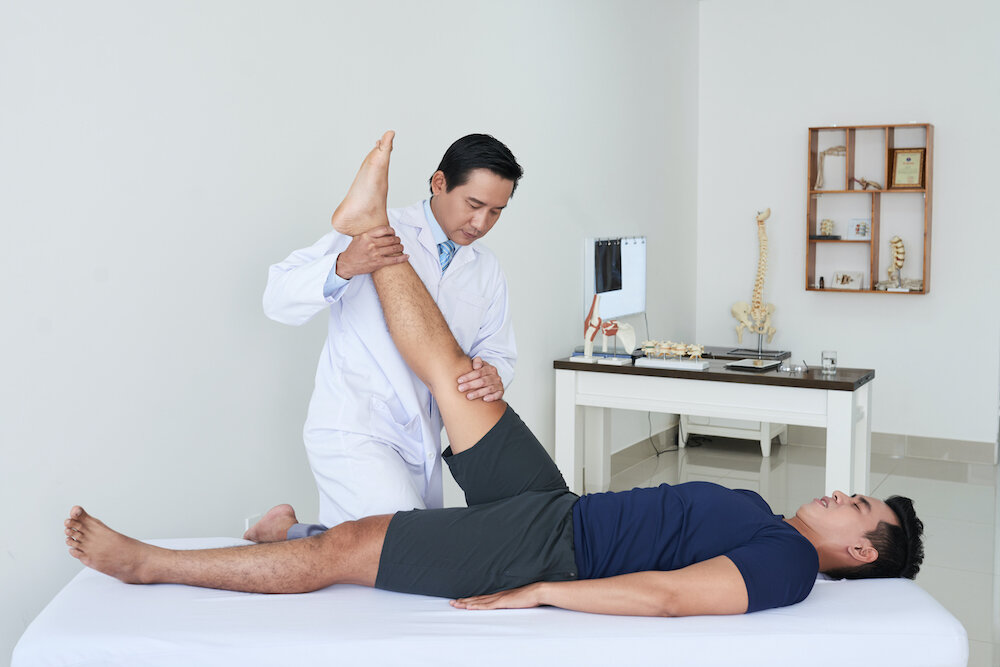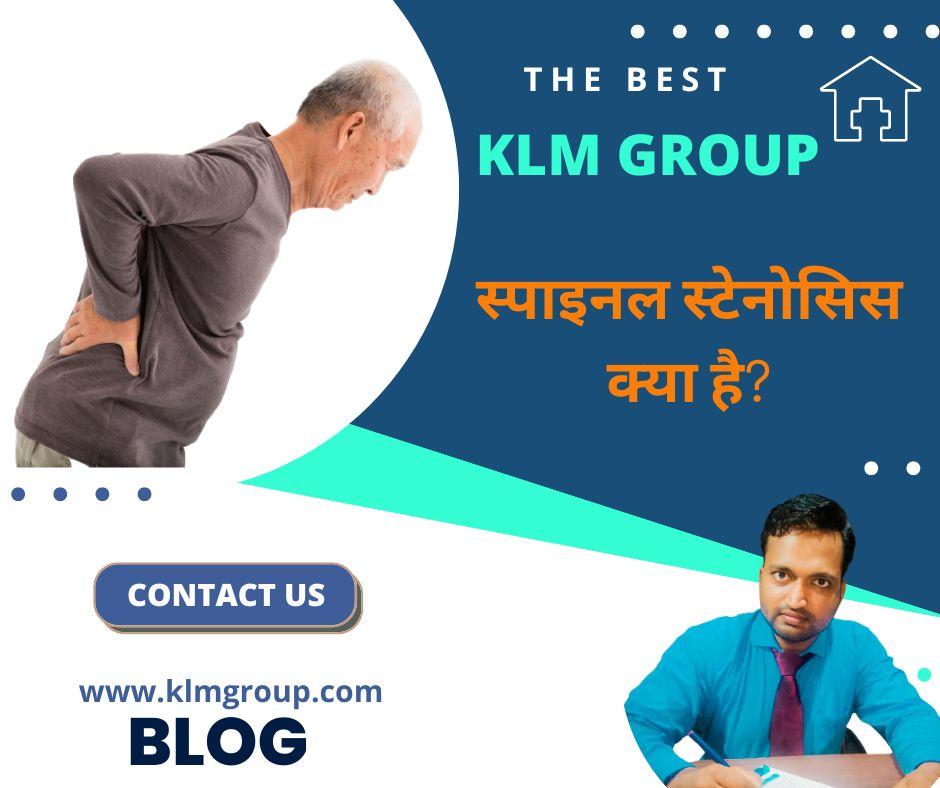What Is Spinal Stenosis: Spinal stenosis is a condition characterized by the narrowing of the spaces within the spine, which can put pressure on the spinal cord and nerves. This narrowing may occur in the cervical (neck), thoracic (mid-back), or lumbar (lower back) regions of the spine and can cause pain, numbness, or weakness in the arms, legs, or other areas of the body.

Range of Spinal Stenosis Signs and Symptoms
Spinal stenosis can look very different from one individual to the next. Some of the following are examples of signs and symptoms that you might experience:
- Pain. The pain could be subtle and localized to the neck or lower back, or it could be an electric-like ache that extends into the arm(s), leg(s), or both. Alternatively, the pain could be throbbing and spread throughout the entire body. The pain may shift from time to time, becoming more severe when particular tasks are performed. Sometimes the pain is more like a tingling or pins-and-needles sensation all over the body.
- Numbness. Numbness or a diminished sensation can develop in the arm, leg, and/or other parts of the body. This can happen anywhere on the body.
Weakness. There is a possibility that the arm, leg, and/or other areas of the body will have decreased strength as well as problems with coordination. Compression of the spinal cord or cauda equina, which is a bundle of nerve roots that runs below the spinal column, can be severe enough to cause dysfunction in the bowels and/or the bladder.
Pain is not always present when spinal stenosis is present. It is possible, though extremely unlikely, that numbness or weakness could be present with little or no discomfort.
Read More:
| MENISCUS TEAR REPAIR |
| TEN SIGNS YOU MIGHT HAVE HIP ARTHRITIS |
| HAND INJURIES Treatment |
| SCOLIOSIS BACK BRACE FOR CHILDREN. |
| Orthopedic Surgeon vs Neurosurgeon: Which Doctor is Correct for You? |
Causes Of Spinal stenosis.
Spinal stenosis may be caused by a variety of factors, including age-related changes in the spine, herniated discs, spinal injuries, or spinal tumors. Symptoms of spinal stenosis may include back pain, leg pain, muscle weakness, numbness or tingling in the arms or legs, and difficulty walking or maintaining balance.

Spinal stenosis can be caused by a variety of factors, including:
- Age-related changes: As people age, the spinal discs in the spine may start to shrink and dry out, causing the spaces in the spine to narrow.
- Arthritis: Arthritis in the spine can cause the bones and joints to grow and enlarge, which can lead to spinal stenosis.
- Herniated or bulging discs: When the discs in the spine bulge or herniate, they can press against the spinal cord or nerves, causing spinal stenosis.
- Spinal injuries: Trauma to the spine, such as fractures or dislocations, can cause spinal stenosis.
- Tumors: Abnormal growths, such as tumors, in the spine can cause spinal stenosis by compressing the spinal cord or nerves.
- Congenital abnormalities: Some people are born with a narrower spinal canal, which can cause spinal stenosis later in life.
- Paget’s disease: This is a rare bone disorder that can cause bones to grow abnormally, leading to spinal stenosis.
- Other medical conditions: Certain medical conditions, such as scoliosis or a history of radiation therapy, can also contribute to the development of spinal stenosis.
It’s important to note that some people may have spinal stenosis without experiencing any symptoms, while others may have symptoms that worsen over time. If you experience back pain, leg pain, or any other symptoms that could be related to spinal stenosis, it’s important to seek medical attention.
Treatment options for spinal stenosis?
Treatment options for spinal stenosis may include medication, physical therapy, and surgery, depending on the severity of the condition and the specific needs of the patient. A healthcare provider can help diagnose and develop a treatment plan for spinal stenosis based on an individual’s symptoms and medical history.

The treatment options for spinal stenosis depend on the severity of the condition and the specific needs of the patient. Treatment options may include:
- Medication: Pain relievers, anti-inflammatory drugs, and muscle relaxants can be prescribed to help relieve pain and inflammation associated with spinal stenosis.
- Physical therapy: A physical therapist can design an exercise program to help strengthen the muscles supporting the spine and improve flexibility and mobility. This can help relieve pressure on the spinal cord and nerves and reduce pain.
- Corticosteroid injections: Injections of corticosteroids can help reduce inflammation and pain in the affected area.
- Surgery: In severe cases, surgery may be necessary to relieve pressure on the spinal cord or nerves. Surgery may involve removing bone or tissue that is pressing on the spinal cord or nerves, or fusing the vertebrae to stabilize the spine.
- Lifestyle modifications: Making certain lifestyle changes, such as maintaining a healthy weight, quitting smoking, and avoiding activities that aggravate symptoms, can help reduce pain and improve overall spinal health.
The specific treatment plan for spinal stenosis will depend on a variety of factors, including the severity of the condition, the location of the stenosis, and the patient’s overall health and medical history. A healthcare provider can help diagnose and develop a treatment plan for spinal stenosis based on an individual’s symptoms and medical history.

Spinal Stenosis Treatment In Gwalior.
The managing director of the KLM Group is Dr. Vipin. He is a renowned spinal stenosis specialist in Gwalior and an orthopedic surgeon with a gold award. Be certain of receiving first-rate medical care, including physiotherapy, orthopedic, spine care in Gwalior, ophthalmology, and x-ray & diagnostic services. He is well-known in Gwalior for his enormous knowledge, experience, and approachable, trustworthy demeanor.
Address: 12, Saraswati Nagar, University Road, Near Silver Estate, Thatipur, Gwalior 474006 Mob: 7804826825 Ph: 0751-4000721 Website: www.klmgroup.org Email: info@klmgroup.org / klmspineclinic.in@gmail.com

